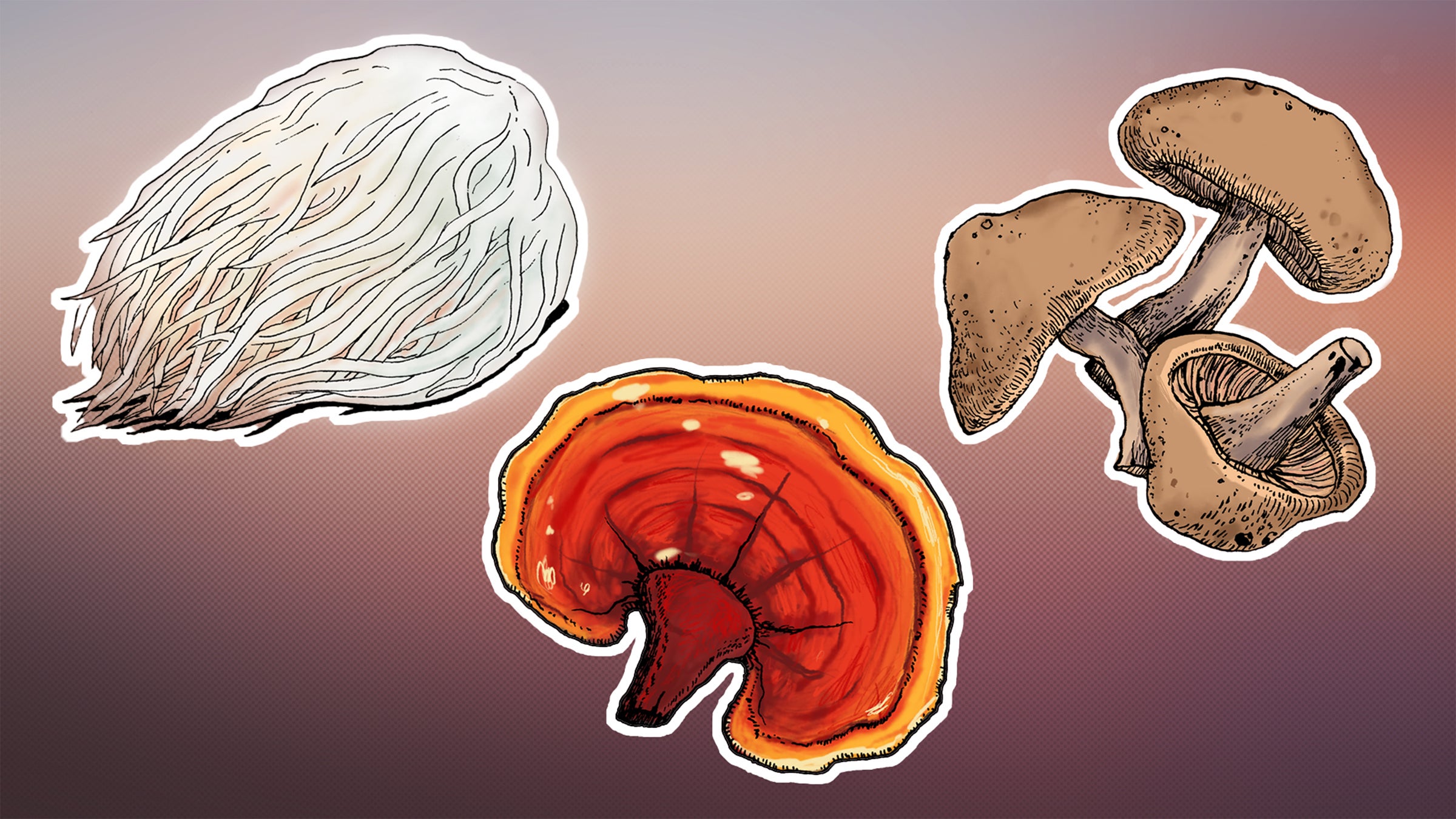This Surprising Mental Health Benefit Will Make You Want to Eat More Mushrooms

(Photo: Jensine Eckwall)
Mushrooms are popping up everywhere. They’re getting sprinkled into your morning cup of coffee, appearing in supplements and taking over as a meaty, tasty plant-based meat alternative. Why is everyone going mad for mushrooms? Well, they’re little nutritional powerhouses – and now scientists are finding that they may be beneficial for your mental health.
According to new research, mushrooms could hold great potential as a mental health powerhouse. And adding more mushrooms into your daily diet may help you better symptoms of mental health ailments like anxiety and depression.
Mushrooms just might reduce your risk for depression
A new study from researchers at Penn State College of Medicine took a close look at mushroom consumption and individuals’ mental health. The researchers examined data from the National Health and Nutrition Examination Survey, which featured information from over 24,000 U.S. adults from 2005 to 2016, noting how frequently individuals were eating mushrooms. From there, researchers compared that mushroom consumption with participants’ self-reported levels of depression.
At the study’s end, researchers found a connection between individuals who’d reported eating moderate-to-high levels of mushrooms and their risk for depression. Higher mushroom intake gave participants lower odds of experiencing depression or depression symptoms, compared to those who ate a low amount of or no mushrooms.
But these findings may not be linked solely to depression. The study’s lead researcher, Djibril Ba, noted that mushrooms are the highest dietary source of ergothioneine, an amino acid that works as an anti-inflammatory agent. Inflammation has been linked to depression, anxiety and other mood disorders, so this inflammation-fighting nutrient may help combat these common mental health woes.
Plus, this isn’t the first research to find a promising link between mushrooms and mental health. Earlier, small-scale clinical trials have shown that eating mushrooms regularly may reduce both depression and anxiety. More research is needed, but these initial studies suggest there’s a whole lot of potential hiding in mushrooms.
What makes mushrooms so great for your mental health?
Mushrooms, though small, are pretty mighty when it comes to the nutrients they can offer. Most run-of-the-mill culinary mushrooms are loaded with an array of antioxidants, vitamins and minerals.
Two of the most important are potassium and vitamin D. Mushrooms, specifically white button mushrooms, deliver about 223 mg of potassium per 1-cup serving. Low potassium levels have been linked to anxiety, and getting a little extra from mushrooms may help reduce your anxiety symptoms. And when it comes to vitamin D, mushrooms can offer as much as 33% of your daily recommended intake. All of that vitamin D may help lessen inflammation – a contributor to mental health conditions – and boost your mood overall.
And you can’t overlook mushrooms’ antioxidants. Most of these meaty little fungi contain ergothioneine, the inflammation-fighting antioxidant mentioned above. In addition to reducing inflammation, it can help prevent damage to cells and tissue. And, according to a 2016 study published in Brain Behavior, this antioxidant can potentially prevent mental illness and depression. Ergothioneine isn’t naturally produced by the body, so the only way to reap its benefits is to eat foods rich in it.
But the benefits of ergothioneine don’t end there. When you take in this antioxidant, you may lower your risk of oxidative stress. That, in turn, may have a positive effect on symptoms related to depression.
Are some mushroom varieties better than others?
Some mushrooms are more magical than others when it comes to your mental health – and no, we’re not talking about actual magic mushrooms! It’s simply that some fungi varieties offer more of the kinds of nutrients that may potentially help you fight the symptoms of and risk for anxiety and depression.
You really can’t go wrong with any of the varieties you’ll find at your local grocery store or farmers’ market. Researchers haven’t pinpointed which mushrooms, exactly, are most closely linked to lowering the risk of depression. But there are certain kinds that can offer more key nutrients that benefit your brain and, in turn, your mental health. Some of the best picks include:
- Lion’s mane: Creates an anti-inflammatory effect that can reduce anxiety and depression symptoms
- Porcini: Packed with ergothioneine for combating inflammation
- Portobello: Rich in potassium, which may fight brain fog
- Reishi: An adaptogen with plenty of beta glucan to benefit the gut-brain axis
- Shiitake: Loaded with amino acids for healthy brain function
Remember, if a little fungi feeds your brain with must-have nutrients, it just might contribute to your mental health too.
Mushrooms offer benefits beyond depression too
Still need a little convincing before you start sprinkling mushrooms into every meal? Fungi aren’t just good for your mental health – or for depression alone. Consuming mushrooms can benefit your health from head to toe.
We’re big fans of mushrooms, especially the medicinal variety (no, not that kind of medicinal mushroom!). Reishi, lion’s mane, cordyceps; these adaptogens are rich in nutrients that can touch on your mental health as well as your physical health from vitamins B and D to protective antioxidants. Plus, all mushrooms are great sources of fiber, a much-needed nutrient that you might not be getting enough of.
And it’s so easy to add more mushrooms into your diet. They impart a deliciously meaty flavor and a little umami to anything you’re cooking up. Slice your fave variety and add them into pasta dishes. If you’re making rice, quinoa or bulgur, you can add mushrooms into the mix for a pop of flavor. For something different, you can use mushroom powder instead of whole mushrooms and whip up a gorgeous golden milk. They’re even perfect as a pizza topping, and you can add a few different types onto your pie for more variety (that’s my own personal go-to!). No matter how you use them, you’ll reap the benefits.